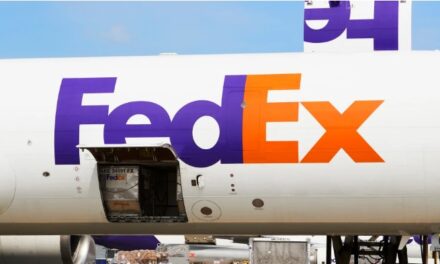
FedEx puts service before savings
TRAFFIC WORLD 15th October 2001
PUTTING SERVICE BEFORE SAVINGS
By SATISH JINDEL
Commentary Copyright 2001, Traffic World Magazine During an analysts' meeting last April in Memphis, Tenn., Fred Smith, CEO of FedEx Corp., once again was asked why FedEx does not integrate the operational network of its express and ground parcel services. Smith, founder of the $20 billion company and the express industry, has been asked this question many times before. Once again, an exasperated Mr. Smith explained the differences in the service requirements of the two businesses and the improved ability to provide higher service for express packages and a more attractive price for ground packages.
Ever since the acquisition of Caliber (and RPS) in 1998, analysts and investors have inquired why Smith is not merging the operations of Federal Express, the express parcel carrier, and RPS, the ground parcel carrier. From the start, FedEx has insisted it has no intention of combining the two companies. In 1999, the company reiterated this position by announcing its succinct corporate philosophy – "operating independently and competing collectively" – and followed up in January 2000 by rebranding RPS as FedEx Ground. FedEx is comprised of five operating companies. The FedEx concept is simple. Each of the operating companies will operate independently. However, when offering supply-chain services to shippers, the combined strengths of the individual operating companies will be sold. Few analysts understand this concept and far fewer are convinced of the merits. This skepticism is not unwarranted as on the surface there could be operating synergy between the operating companies that FedEx has chosen not to exploit. For example, FedEx may have two separate drivers delivering to a single consignee's location on the same day while UPS may deliver with one driver. Analysts whose primary focus is on EBITDA (earning before interest, taxes, depreciation and amortization) and EPS (earnings per share) see cost reduction on like revenue as a "no brainer." As long as the venerable Smith occupies the top spot at FedEx, the company is unlikely to deviate from his belief that nothing less than 100 percent on-time service is acceptable for service- sensitive express shipments. By providing superior on-time service and tracking visibility, customers will identify the FedEx brand as No. 1 and profits will follow. In the final analysis, profit initiatives – not cost controls – drive future prosperity for the company and higher return for the shareholders. The integration question involves the operations of the two parcel carriers in domestic United States, FedEx Express and FedEx Ground. Fred Smith and CFO Alan Graf Jr. repeatedly have stressed that the upside of operating independently outweighs the downside of the additional costs built into the operational networks. We see several reasons in support of this philosophy. — Superior on-time service. For an overnight document delivery service of FedEx or United Parcel Service, a shipper could pay $12, or a thousand percent more than first-class mail postage. The customers pay the hefty premium for higher reliability, dependability and guaranteed delivery. The business and sports worlds have numerous examples of how you either can be a master of one or jack-of-all-trades. With a single-minded focus on express service, and a superior 100 percent on-time performance culture promoted by Fred Smith, FedEx Express is determined to be the master of express service. Similarly, for the ground-parcel market, where price is of greatest importance to the shipper, FedEx Ground is focused on cost management to provide the lowest price with a competitive on-time service. — Service flexibility. With a separate operating network, FedEx Express is better positioned to offer later pickup and earlier delivery commitment times. The most important reason for shippers to use the overnight express services is to gain more time for processing the order and to shorten the delivery time. FedEx's introduction of Extra Hours Service is an example of this capability. This service would be more difficult and expensive to implement with an integrated express and ground network. — Labor advantage. From a labor viewpoint, it is more advantageous for a corporation to have a different work force for each business unit. It reinforces the benefits of having presence in different businesses – for diversification and risk reduction. Irrespective of which labor laws govern FedEx and FedEx Ground, as long as each company can continue operating while there is labor disruption at a sister company, it is prudent to keep the operating companies separate. Operating independently at UPS In the 1980s, recognizing the potential of domestic express and international parcel services, United Parcel Service sought to buy DHL. If UPS had succeeded, it would not have integrated the two operations. More recently, expansion by UPS into dedicated air transportation, same-day service, logistics, local dropoff centers and, most recently, mail consolidation and distribution, has led to the creation of separate companies operating independently but competing collectively. Even UPS with its integrated network uses more than one driver in most instances for pickup and delivery; deliveries of certain express packages and pickups from letter dropoff boxes are serviced by air drivers while all other packages are picked up by package car drivers. Moreover, the timing of the recent acquisitions also indicate that UPS is positioning itself to have an alternative network to handle any disruption of service during negotiations with the Teamsters union next summer. Recent UPS financial success is less due to one network for express and ground parcel services and more due to effective marketing and pricing decisions. The major factors include: dominance in the brown-box business acquired over the last several decades, penetration of small and midsize parcel shippers that generate millions of dollars in weekly pickup fees, improving the perception of its express service and implementing up to 150 percent increases in accessorial charges. Alternatively, weak financial performance at FedEx Express is due to reasons other than lack of density in the delivery operation. Prior to the merger in early 1998, both FedEx Express and RPS operated independently with daily volume significantly lower than today but achieved operating margins better than today (see chart). FedEx Express' operating ratio was as good as UPS's from 1994 to 1997 with 18 percent of daily volume handled by UPS. More importantly, in 1996, RPS achieved an impressive operating ratio of 86.53 on daily volume of 1.1 million while UPS operated at 91.28 with a daily volume of 12.4 million. This should help the financial community recognize that the current lack of profitability at FedEx is not due to weakness in FedEx's strategy but difficulty with the execution. As FedEx Express and FedEx Ground execute on this strategy, the merit will become clear to the financial community. One can see the success of this strategy in the hotel industry. Marriott is a chain of hotels, where each chain is operated independently and focused on meeting the service and price-value proposition of its target market. Its competitor, Holiday Inn, is also a chain of hotels that started earlier and had the most recognized name in the industry. Yet, Marriott ranks much higher in name recognition, financial performance and customer loyalty than Holiday Inns. The strategy of operating independently and competing collectively at Marriott has proven to be superior to the integrated strategy of Holiday Inns. In the aftermath of recent terrorist attacks on America, the benefits of operating independently were demonstrated by the differences in the handing of on-time service guarantee by UPS and FedEx. When the Federal Aviation Administration closed the national air system for a few days, UPS suspended guarantee on all services, while FedEx did so only for its express services. FedEx Ground, with its independent operation that was not impacted by the FAA decision, continued to offer on-time service guarantee. Jindel is a principal at SJ Consulting Group Inc. and a former executive at RPS.












